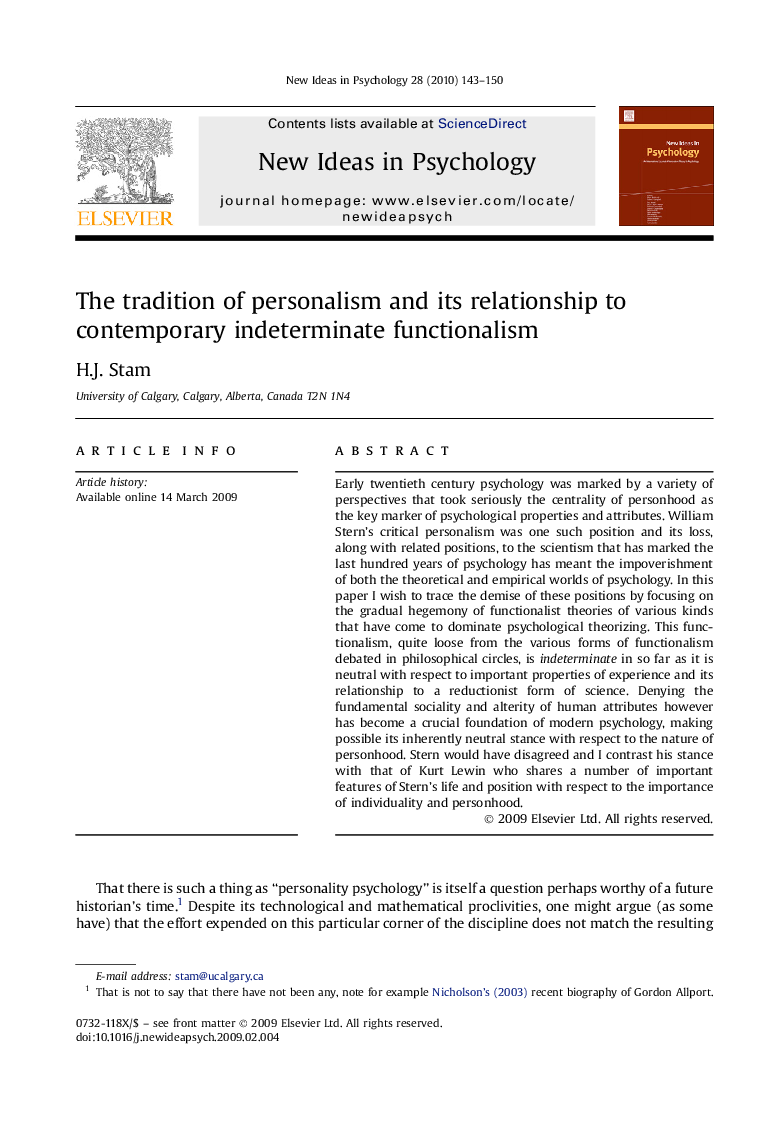| Article ID | Journal | Published Year | Pages | File Type |
|---|---|---|---|---|
| 331643 | New Ideas in Psychology | 2010 | 8 Pages |
Abstract
Early twentieth century psychology was marked by a variety of perspectives that took seriously the centrality of personhood as the key marker of psychological properties and attributes. William Stern's critical personalism was one such position and its loss, along with related positions, to the scientism that has marked the last hundred years of psychology has meant the impoverishment of both the theoretical and empirical worlds of psychology. In this paper I wish to trace the demise of these positions by focusing on the gradual hegemony of functionalist theories of various kinds that have come to dominate psychological theorizing. This functionalism, quite loose from the various forms of functionalism debated in philosophical circles, is indeterminate in so far as it is neutral with respect to important properties of experience and its relationship to a reductionist form of science. Denying the fundamental sociality and alterity of human attributes however has become a crucial foundation of modern psychology, making possible its inherently neutral stance with respect to the nature of personhood. Stern would have disagreed and I contrast his stance with that of Kurt Lewin who shares a number of important features of Stern's life and position with respect to the importance of individuality and personhood.
Related Topics
Social Sciences and Humanities
Psychology
Developmental and Educational Psychology
Authors
H.J. Stam,
